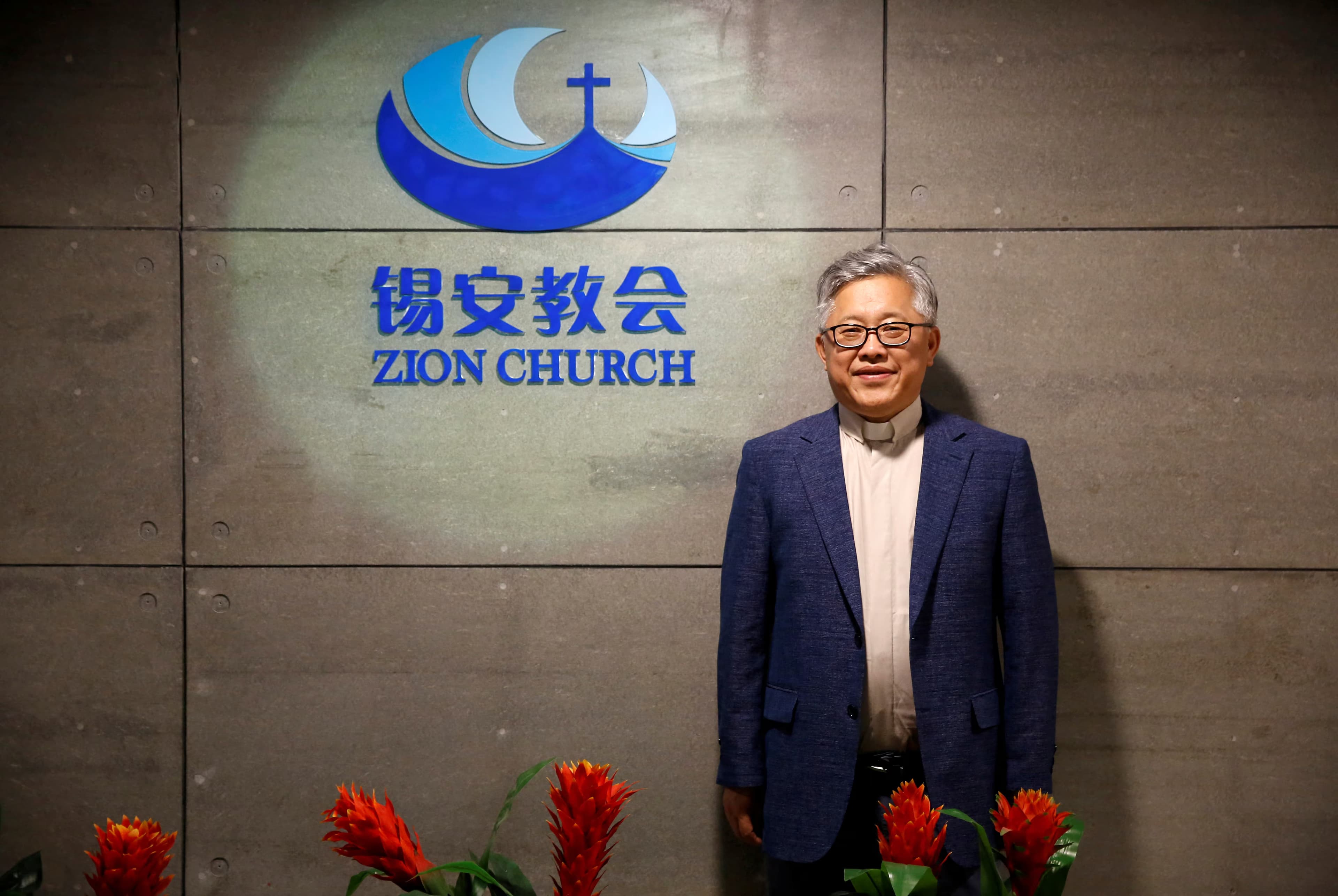We're loading the full news article for you. This includes the article content, images, author information, and related articles.
A recent wave of arrests targeting members of the Zion Church network in China has raised alarms among human rights activists, signalling a potential escalation in Beijing's efforts to control religious practice and suppress independent congregations.

Chinese authorities last Friday, October 10, 2025, detained approximately 30 Christians linked to the Zion Church network, a prominent unregistered Protestant church. Among those arrested was the church's founder, Pastor Jin Mingri, who was reportedly taken into custody in Beihai city, Guangxi province. His daughter, Grace Jin Drexel, who resides in the United States, confirmed her father's detention after receiving a text message from him requesting prayers for another missing pastor, followed by an inability to contact him.
The arrests, which occurred across at least seven provinces, including major cities like Beijing and Shanghai, have been described by activists as the most extensive and coordinated crackdown on urban independent house churches in China in over four decades. While some individuals have reportedly been released, many remain in detention, with Pastor Jin facing allegations of "illegal use of information networks."
China, officially an atheist state under the rule of the Chinese Communist Party (CCP), has a complex history with religious freedom. While the constitution nominally grants citizens freedom of religious belief, the state heavily regulates religious practice. The CCP has increasingly implemented a policy of "Sinicization" of religions since 2018, aiming to align religious doctrines and practices with Chinese culture and the Party's ideology.
For decades, the government has recognized only state-controlled religious bodies, such as the Catholic Patriotic Association and the Protestant Three-Self Patriotic Movement, which emphasise loyalty to China and the Communist Party. However, a significant portion of China's Christian population belongs to informal networks and unregistered "house churches" that operate outside official oversight.
The recent crackdown follows new regulations issued by China's top religion regulator in September 2025, which banned unauthorised online preaching or religious training by clergy and prohibited "foreign collusion." These rules, titled "Code of Conduct for Religious Clergy on the Internet," criminalise various online religious activities unless conducted through government-approved platforms. President Xi Jinping has also vowed to "implement strict law enforcement" and advance the Sinicization of religion.
The charge of "illegal use of information networks" against Pastor Jin carries a maximum jail term of seven years. Human Rights Watch noted that this charge is a crime under China's criminal law (article 287-1) and carries up to three years in prison. Critics argue that such laws are used to criminalise peaceful worship and suppress religious expression outside state control.
Grace Jin Drexel expressed concern for her father's health, noting his history of diabetes and need for medication. She also highlighted that lawyers have been barred from meeting the detained pastors, raising further worries about their well-being and legal rights.
Sean Long, a Zion Church pastor based in the United States, stated that the arrests occurred in six provinces and that one female pastor was separated from her newborn during the operation. He condemned the actions as a "brutal violation of freedom of religion, which is written into the Chinese constitution." International Christian Concern (ICC) has also condemned the arrests as a "direct assault on the fundamental human right of religious freedom."
This crackdown signals an intensified effort by the Chinese government to control religious narratives and eliminate any independent civil faith communities that do not submit to state control. The use of digital surveillance and charges like "illegal use of information networks" reflects a modern approach to suppressing religious freedom, reminiscent of past periods of persecution but now aided by advanced technology.
For Kenyans, this situation underscores the stark contrast in religious freedoms. Kenya, where approximately 80% of the population identifies as Christian, has become a refuge for some Chinese Christians seeking to practice their faith openly. There have been instances of Chinese nationals finding solace in Kenyan churches, highlighting the differing approaches to religious expression between the two nations.
The exact number of Christians in China remains a subject of debate, with official government figures often considered conservative due to the large number of unregistered churches. The long-term impact of these crackdowns on the growth and practice of Christianity in China is also uncertain, with some surveys suggesting a plateau in growth while other organisations claim continued expansion.
The Chinese government maintains that it respects religious freedom and protects legitimate religious activities, provided they adhere to national laws and do not disrupt public order or interfere with the state's educational system. However, human rights organisations consistently report a deteriorating environment for religious freedom in China.
Observers will be closely monitoring the legal proceedings against Pastor Jin Mingri and other detained individuals, as well as any further actions by the Chinese government against unregistered religious groups. The international community's response and diplomatic pressure on Beijing regarding religious freedom will also be a key area to watch. The implications for Chinese nationals living abroad, particularly in countries like Kenya, where religious freedom is more pronounced, may also evolve.
In June 2025, Uyghur representatives attended a religious freedom conference in Nairobi, Kenya, to raise awareness among African leaders about China's repression of religious minorities, including Uyghur Muslims.
Keep the conversation in one place—threads here stay linked to the story and in the forums.
Sign in to start a discussion
Start a conversation about this story and keep it linked here.
Other hot threads
E-sports and Gaming Community in Kenya
Active 9 months ago
The Role of Technology in Modern Agriculture (AgriTech)
Active 9 months ago
Popular Recreational Activities Across Counties
Active 9 months ago
Investing in Youth Sports Development Programs
Active 9 months ago